|
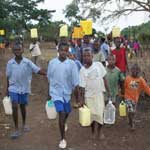
Picture taken by Benson, a Class 5 pupil passionate
about photography.
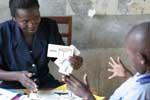
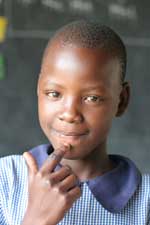
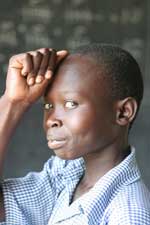
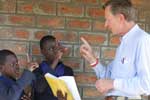

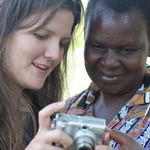
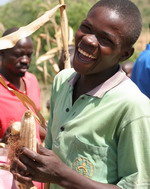
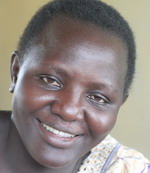
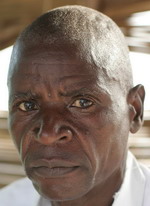
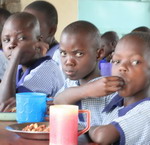
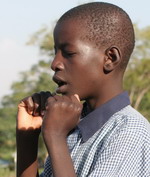
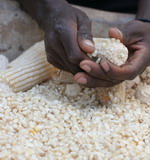
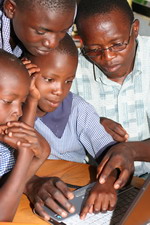
Pictures and Report by Yorke Rodda, www.yrphotos.co.uk
|
Lambwe Christian School for the Deaf, Kenya
Location
The school is located in the remote village of Ogongo in Mbita, in the province of Nyanza to the far west of the country. It is about 17 km from Homa Bay on the road to Mbita. In common with most of Kenya there are no landlines but most people, even the poorest, have a mobile phone. In 2008, Safaricom, a subsidiary of Vodaphone, installed electricity to a new transmitter in the village and we were able to fund an extension to the school. Margaret Odhiambo, the Head Teacher, had the foresight to install 3-phase wiring to enable the future installation of machinery in the workshop. Although Lake Victoria is only about 5 km north of the Village, water is a great problem and they are dependent on rain.
None of the staff own a car but one has a motorcycle. There are irregular Matatus (overcrowded minibuses and cars) that pass through the village. The closest large town is Homa Bay which has hotels, banks, shops and some government offices. Kisumu, about 140 km north, has a port on Lake Victoria and an airport that links it to Nairobi. The road north is now tarmacked from the junction with the Mbita road, about 2 Km from Homa Bay. Both the other main roads are supposed to have been surfaced by now but are way behind schedule (12 months and 18 months!).
Pupils
The school is a government primary school with 86 pupils from Year/Grade 0 to 8 and they range in age from 5 to 19 years. Most of the pupils live in Nyanza province. They are all boarders and so the school becomes their home for most of the year. Many of the children are apprehensive when it comes to the end of term as going home to family (often distant relatives or just friends) is not easy as at the school these deaf children can "speak" to each other and are accepted as part of the community. Often, away from school, they experience loneliness and rejection and may be considered stupid. About 23 children are “total orphans” with no known relatives. Where possible, the school encourages and helps pupils maintain contact with their family or friends and training days are arranged for the adults, which are having a positive effect on relationships and attitudes in most cases.
There is a very rudimentary "library" of books on a few shelves and some education aids. Three years ago there were no toys, no sports equipment, no books to read or any hobbies that engaged the pupils after school hours but this is improving with supplies sent or sourced by the current Siloam fundraiser, Martin Mackenzie and others. Helping with daily chores like fetching water, washing dishes and helping on the farm makes up an important part of their day. Sports Days and competitions help to stimulate and lift the spirit of the children. These can be local (in the school), regional, or national. Through the use of signing they play with each other and build close friendships.
Deaf people are just as able in almost every area of human endeavour as hearing people. Hearing people who cannot sign have a disability when it comes to communicating with deaf people. Poor social interaction at their homes, the lack of resources for speech training and almost no deaf role models in Kenya add to their difficulties. Some video programmes and books (e.g: FB eye) showing how some deaf people have succeeded in life are now used to encourage the children and educate the adults in their lives.
Teaching Staff
There should be 9 government employed teacher (one is deaf), but there are two vacancies, 2 nursery teachers paid locally and one US Peace Corps volunteer, who is deaf. There are 9 classes (Years 0 to 8) and this makes it impossible to spend the time needed with each child.
There are 10 non-teaching staff:
1 accounts clerk,
1 typist (secretary);
2 cooks,
2 housemothers;
1 herdsman,
1 grounds man,
2 watchman.
The staff are caring, hard working and dedicated. Although this is a State School, the money available falls short of even basic needs and has to be topped up with a little money from school fees and donations from a variety of sources, mainly Siloam Christian Ministries.
Only two staff have formal training in Kenya Sign Laguage. The Head Teacher, Margaret Odhiambo has provided exceptional vision and leadership.
Community Ownership and Management
The school was started by a member of the community but over the years it has faced painful opposition from many of the locals because it supports children who were considered to be cursed. The School Board of Governors are mainly committed Christians who work tirelessly and with enormous dedication to the school. The Anglican Bishop, Rt Rev James Ochiel, has appointed a deaf vicar who can sign to serve in the local parish. This local vicar, Joseph Muga, tells how friends from abroad sponsored him to receive an education and the hearing aid that enables him to minister to both deaf and hearing parishioners.
Kenya Sign Language, KSL
KSL is a fully developed and unique sign language. As with all sign languages, it is a "work in progress" and new words are created all the time. The alphabet they use is almost identical to American Sign Language. Yorke Rodda, who visited the school in 2005, said, “Pupils were able to teach me how to sign the alphabet, count and many of the common words. The pupils are wonderful teachers and so very keen to communicate! A group of the little children told me about the food they loved: chicken, beef, mutton ... and I understood it all.”
Use of the Land
The school has a reasonably large "shamba" or plot of land where they grow maize and graze 10 head of cattle. Despite input from the International Centre of Insect Physiology and Ecology (icipe) in Mbita, the crops are failing for lack of rain.
There are two full-time members of staff taking care of the "shamba" and animals. If there was more water a great deal more could be achieved towards being self sufficient. This is another reason that a bore hole is vital. Dr Khan of icipe, one of the Governers, gave the school a milk goat at the end of June 2011.
Parent and Family Support
The view of most Kenyans, even parents and family of deaf children, is that they will never be able to work for an employer. Paying school fees for a deaf child is a very low priority. Slowly the school has managed to get parents or carers to understand that the school is only partially funded by the state and donors. The school makes an effort to inform family and community about deafness. The fees requested are very small and are sometimes waived.
Original text by Yorke Rodda, amended and updated by Martin Mackenzie, July 2011.
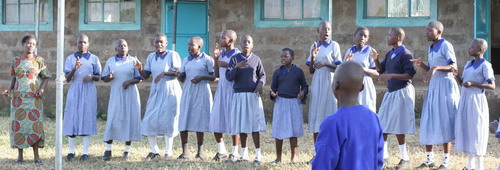
Make
a donation to this project
Gift Aid Declaration Form
Top of page
|


